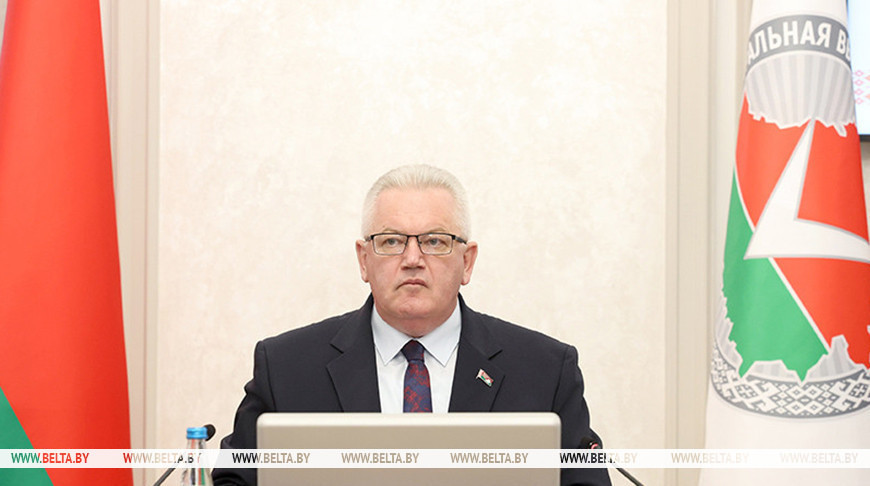
Igor Karpenko
MINSK, 14 May (BelTA) - The most important decisions on the development of Belarus are based solely on the will of the people, Chairman of the Central Election Commission (CEC) of Belarus Igor Karpenko told BelTA.
“The implementation of the president's initiative to hold the first referendum on 14 May 1995 testifies to the head of state’s desire to make the most important decisions on the development of the state exclusively based on the will of the people,” said Igor Karpenko. “The first referendum became the starting point for the implementation of Aleksandr Lukashenko’s people's policy, laid new traditions of people's power in the sovereign Republic of Belarus. Later, the meetings of the Belarusian People's Congress were held, there was a public discussion of draft regulatory legal acts, systematic work with petitions of citizens and legal entities, dialogue platforms and meetings in labor collectives.”
Over all these years Belarus has strengthened its independence and built a state for the people, the CEC head said. “Now, we can say with certainty that the decisions of the first and subsequent referendums were strategically correct and consolidated the Belarusian society,” emphasized Igor Karpenko.
The first referendum in the history of Belarus was held on 14 May 1995 on the initiative of President Aleksandr Lukashenko. Four questions were put to the referendum:
1) Do you agree with giving the Russian language equal status with the Belarusian language?
2) Do you support the proposal to establish a new State Flag and State Emblem of the Republic of Belarus?
3) Do you support the actions of the President of the Republic of Belarus aimed at economic integration with the Russian Federation?
4) Do you agree with the necessity to amend the current Constitution of the Republic of Belarus, which provides for the possibility of early termination of the powers of the Supreme Council by the President of the Republic of Belarus in cases of systematic or gross violation of the Constitution?
The first three questions were submitted to a mandatory referendum, while the answer to the fourth one was to be of a recommendatory nature.
In the course of the nationwide vote, the initiatives of the head of state were widely supported. According to the data of the Central Election Commission of the Republic of Belarus, 4,017,273 people (83.3%) were in favor of the first question, while 613,516 people (12.7%) were against it; 3,622,851 people (75.1%) voted in favor of approving the second question, and 988,839 people (20.5%) voted against; on the third question, 4,020,001 people (83.3%) voted in favor, while 602,144 people (12.5%) against; 3,749,266 people (77.7%) voted in favor of approving the fourth question, 857,485 people (17.8%) against.
A total of 7,445,820 people were included in the lists of citizens who had the right to participate in the national referendum; as many as 4,823,482 people (64.8%) cast their votes in the national referendum.
On 7 June 1995 the President of Belarus issued Decree No.213 “On Approval of the Standard of the State Emblem of the Republic of Belarus and the Regulation on the State Emblem of the Republic of Belarus” and Decree No.214 “On Approval of the Regulation on the State Flag of the Republic of Belarus”, which legislated the change of the state symbols.
After the referendum, the Russian language in Belarus acquired the status of the state language, the president expanded his powers, and the modern flag and emblem became the official symbols of the country. In April 1996, based on the results of the referendum, Minsk and Moscow signed the Agreement on the Establishment of the Community of Russia and Belarus. The Union State was established in December 1999.













